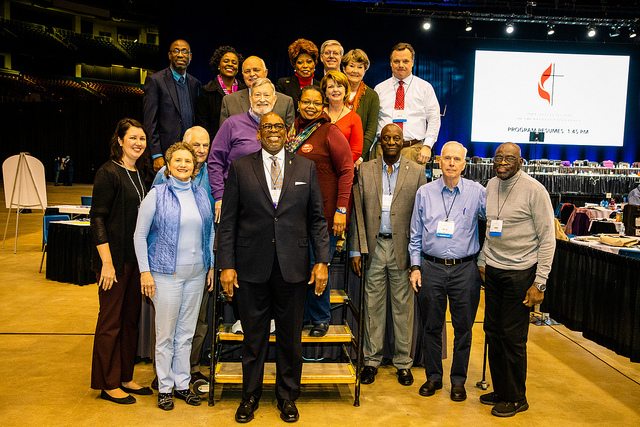
Passage Tuesday of an amended Traditional Plan – along with a first-ever “exit plan” for churches unhappy with the now stricter church doctrine on homosexuality – left many delegates saddened, hurt and concerned for the future of a clearly divided United Methodist Church.
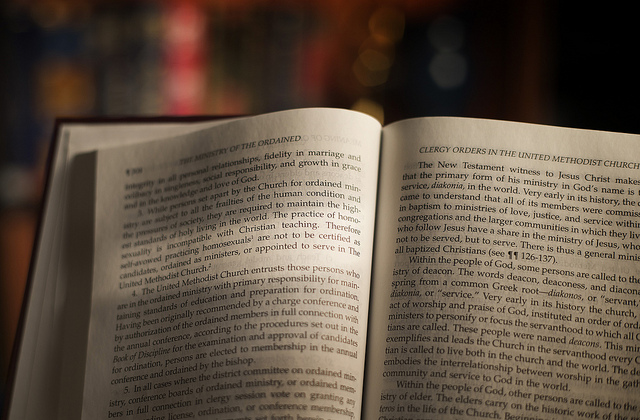
The four-day 2019 General Conference closed with gasps, protests
In the end, delegates approved an amended version of the Traditional Plan, which would add stricter enforcement of prohibitions in the UMC Book of Discipline on same-gender weddings and the ordination of “self-avowed, practicing homosexuals.”
Delegates from South Carolina on both sides of the issue found themselves grasping for the right words to describe the raw emotions – their own and those of other delegates – when it became clear the church they love is as divided as ever.
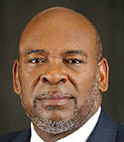
“The complexity of the conversation we have had over the past few days of General Conference – indeed, over the past few years – has shown that we are still a church that is not of one mind on issues surrounding human sexuality, said Bishop L. Jonathan Holston, resident bishop of the South Carolina Conference.
“I know there are people in South Carolina who see the decisions of the General Conference as hurtful and are saddened by the outcome. I know there are some in our annual conference who prayed for this outcome.
“But whether you are pleased or challenged by the actions of the General Conference, this is not a day to declare winners and losers – this is a time for us to really seek God’s grace together.”
Bishop Holston and his fellow bishops did not have a vote on the matter. That authority rested exclusively with the 864 delegates from around the global United Methodist Church – including 16 from South Carolina.
Before those delegates approved stricter enforcement called for in the amended Traditional Plan, they rejected the One Church Plan – a proposal backed by a majority of bishops that would have eliminated restrictions on same-gender weddings and gay clergy, allowing such decisions to be made on the local church and conference levels.
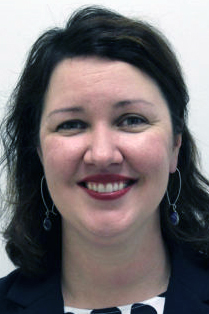
“The ability to do harm comes in many different forms,” said the Rev. Narcie Jeter, a clergy delegate and associate pastor of Bethany United Methodist Church in Summerville. “Some of my people back home wanted me to vote for the Traditional Plan, and that would do harm. Some wanted me to vote for the One Church Plan, and that would do harm.
“We do harm to one another, and that’s not really the Body of Christ – but it is.”
Rev. Jeter and many other delegates often found themselves fighting back tears as they processed what the General Conference’s decisions meant for the future of the church.
“The ability to form relationships and have conversations with those who hold opposite views is very much needed right now,” Rev. Jeter said. “If you are hearing only one side of this issue, I would ask you to step out of your comfort zone. I bet there are people around you who have disagreeing views, even in your own
“So try to understand their perspective and listen to them without judgment or hatred or trying to argue. That’s how real relationships are made. That’s how we will grow our church. That’s how we will grow as disciples of Jesus Christ. That’s what discipleship is. It’s not all fun and games. It’s not all comfortable – but no one ever said this would be easy.”
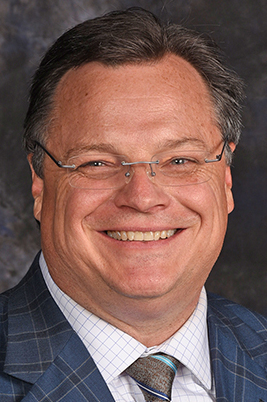
The Rev. Mel Arant, a clergy delegate who supported the Traditional Plan, said that as painful as the debate has become, taking action was a necessary step that will allow the church to move ahead and begin healing.
“Even though we’ve made a decision, we still have a greatly divided church,” said Rev. Arant, pastor of Pendleton United Methodist Church. We are here as delegates because we deeply love the United Methodist Church, and when our family is divided, it hurts us.
“I would ask all of the folks at our churches back home to remember that we were the church together when this started on Saturday, we are the church together now, and we will be the church together tomorrow.”
The Rev. Susan Leonard, a clergy delegate who supported the One Church Plan, expressed disappointment that the church does not seem to have a way forward together. She sees the Traditional Plan as “a move backward.”
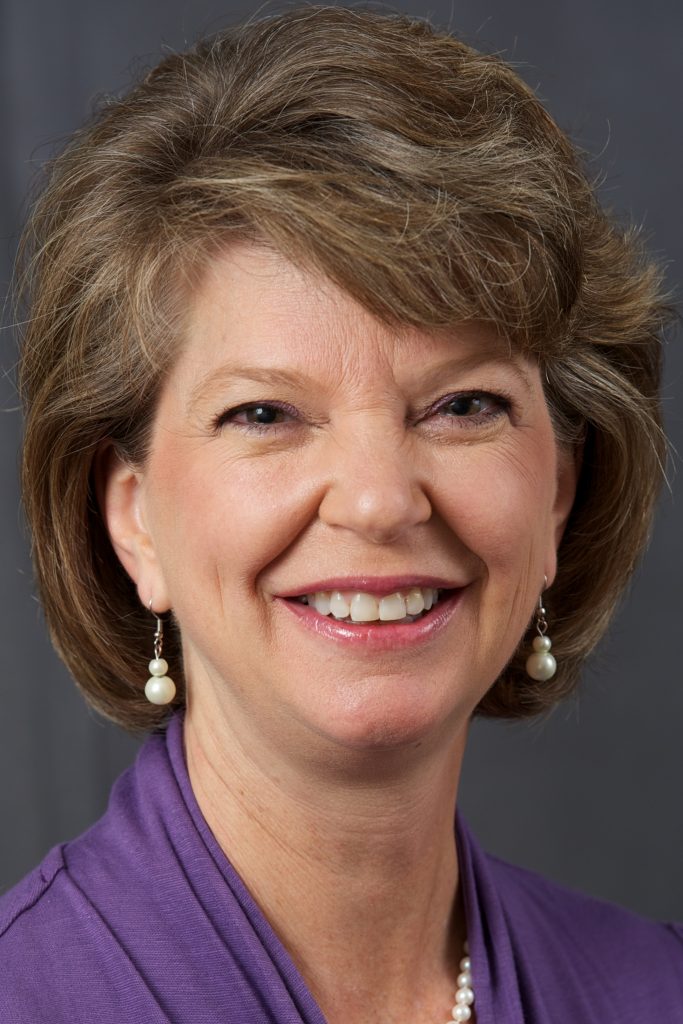
“I love this beautiful, diverse, colorful, vibrant, global community called the United Methodist Church,” said Rev. Leonard, pastor of Bethel United Methodist Church in downtown Charleston. “Yet we are clearly a divided church on matters of human sexuality and whether we will be an open and affirming church, welcoming fully our brothers and sisters who would identify themselves as LGBTQ.
“Affirming the Traditional Plan adds
“Personally, I cannot support the Traditional Plan. In the words of the Rev. Tom Berlin, it ‘introduces a virus into the church that will make our missional and financial structures very ill.’ ”
Rev. Leonard said she would have preferred retaining the current Book of Discipline language to the even more restrictive provisions in the Traditional Plan.
“I will look forward to returning to the local church that I love,” Rev. Leonard said, “and serve where we can in our own context – and love and welcome all God’s people as we share the journey of faith together.”
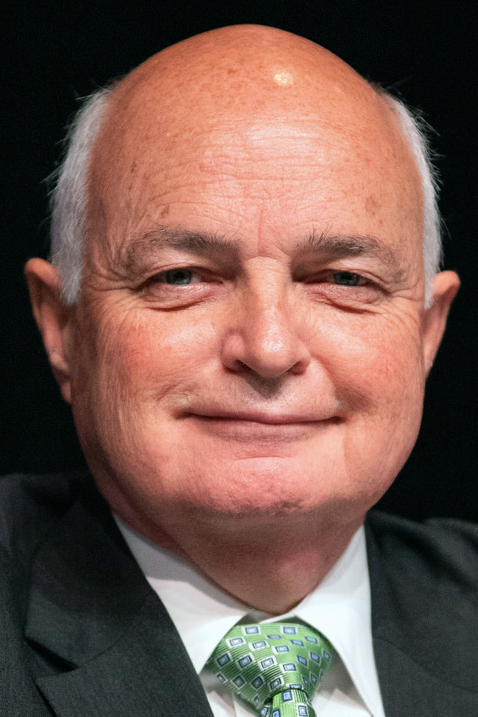
The Rev. Dr. Tim McClendon, a clergy delegate who supported the Traditional Plan, acknowledged that “there are a lot of hurt people.”
“You could feel that palpably in the room and hear it as well, with the chants of protesters and some delegates,” said Rev. McClendon, pastor of St. John’s United Methodist Church in Aiken. “I hope it wasn’t win-lose. I hope there’s some way we can remain together and work together, but it made obvious the huge issues we have.
“Personally, I’m grateful the Traditional Plan won. The One Church Plan would have taken the tension that we all saw here into a vote in every local church, and that would have been horrible.”
“I’m glad the Traditional Plan was affirmed, but I do hurt for my brothers and sisters to whom harm has been done. We’re all sinners. We all need Jesus. That’s the unity of the church, not our identity as sexual beings.”
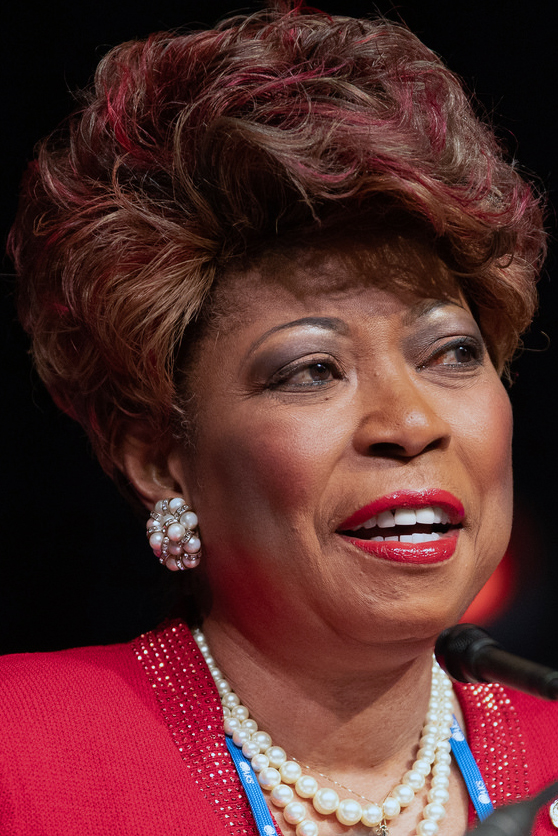
Jackie Jenkins, a lay delegate who supported the Traditional Plan, believes that all delegates passionately believed the plans they supported are pleasing to God and reflect Jesus’ teaching.
“But it is the attitudes with which we look forward that will determine the future of every United Methodist, regardless of which plan was adopted,” said Jenkins, the conference director of Lay Servant Ministries. “Speeches from the General Conference floor often implied that the life or death of their congregations hinged on the adoption or failure of a particular plan.
“Nevertheless, on the first Sunday of March, churches will open, worshippers will sing hymns and pray, an offering will be taken to continue the administration and ministries of the church, a sermon will motivate us to service, and church activities and missions will be announced.
“In the following days, weeks and months, people in our mission fields still will be hungry, homeless, hurting, disenfranchised, abused, lost and seeking. Our post-GC2019 attitudes affect our response to our mission fields even more than what is decided.”
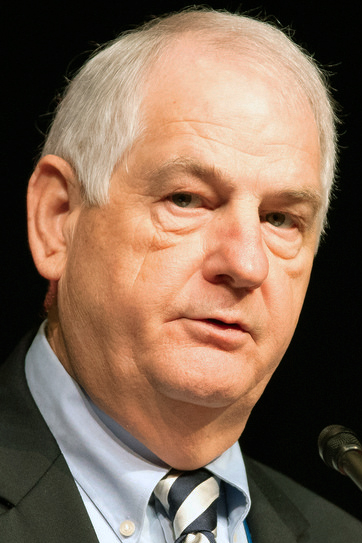
Herman Lightsey, a lay delegate who supported the Traditional Plan, echoed that need for local churches to remain focused on mission and ministry.
“No matter what we do, when we go back, God’s got a church for us,” Lightsey said. “If we split into two churches, those two churches are going to grow, because Christianity has grown out of strife as much as it has anything else.
“God’s got a plan for us.”
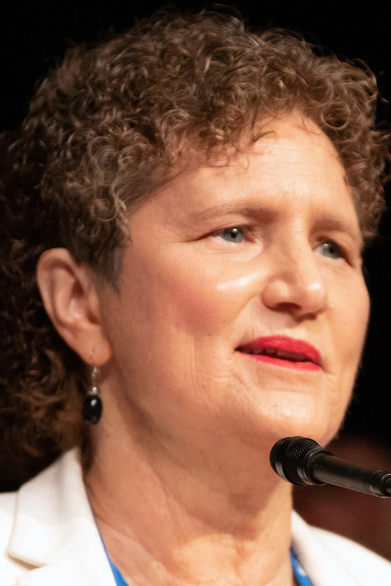
Lay delegate Barbara Ware said the General Conference action was the culmination of “a very difficult time in the life of the United Methodist Church.”
“I would equate it with a family having a disagreement and trying to find a way to solve it,” said Ware, the conference lay leader. “There is pain and sadness sometimes when we disagree with family members.
“My prayer for the United Methodist Church is that we can continue to be a source of strength for a hurting world.”
